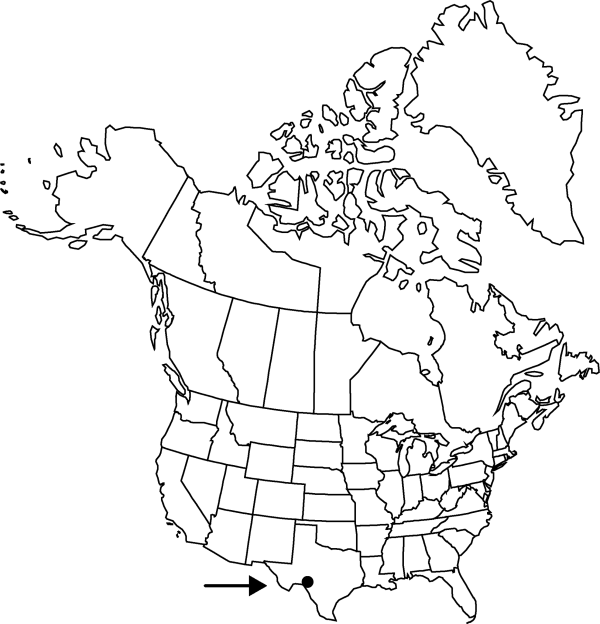Acleisanthes crassifolia
Amer. J. Sci. Arts, ser. 2, 15: 260. 1853.
Plants herbaceous, often slightly woody at base, overall pubescence of white, capitate hairs 0.1–0.2 mm. Stems procumbent, sparsely branched, 15–50 cm, hirtellous to glabrate. Leaves grayish green (major veins prominently paler), petiolate, those of pair slightly unequal; petiole 2–15 (–20) mm, hirtellous; blade ovate to deltate-ovate or oblong-ovate, (5–) 10–35 (–45) × 2–20 (–30) mm, base usually rounded, margins undulate, apex apiculate and acute or less frequently obtuse, sparsely puberulent abaxially and adaxially, adaxial primary and secondary-veins hirtellous. Inflorescences solitary flowers, sessile or nearly so; bracts linear-lanceolate, 2–7 mm, long attenuate, usually puberulent. Flowers: chasmogamous perianth 3–5 cm, puberulent, tube 1–1.5 mm diam., limbs 8–25 mm diam., stamens 5; cleistogamous perianth 2–6 mm, hirtellous, stamens 2. Fruits with 5 broad, flat ribs, lacking grooves and resinous glands, 5-angled and shallowly 5-sulcate, oval-oblong, truncate at both ends, 6–9 mm, hirtellous.
Phenology: Flowering spring–fall.
Habitat: Rocky, calcareous soils in cenizo (Leucophyllum frutescens) shrublands and grasslands
Elevation: 200-700 m
Distribution

Tex., Mexico (Coahuila)
Discussion
Of conservation concern.
Selected References
None.
Lower Taxa
"thick" is not a number.